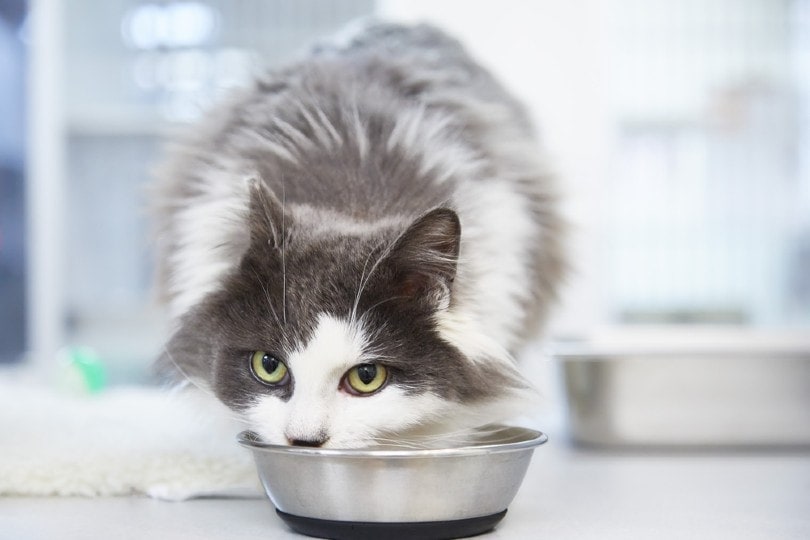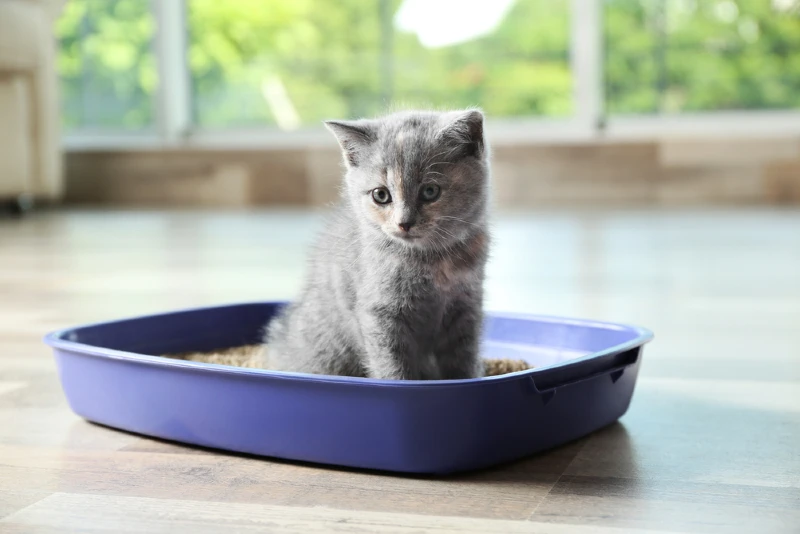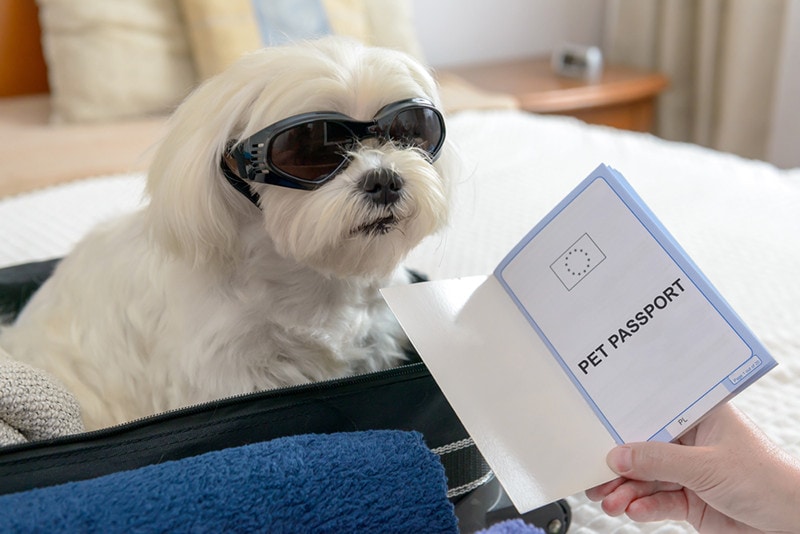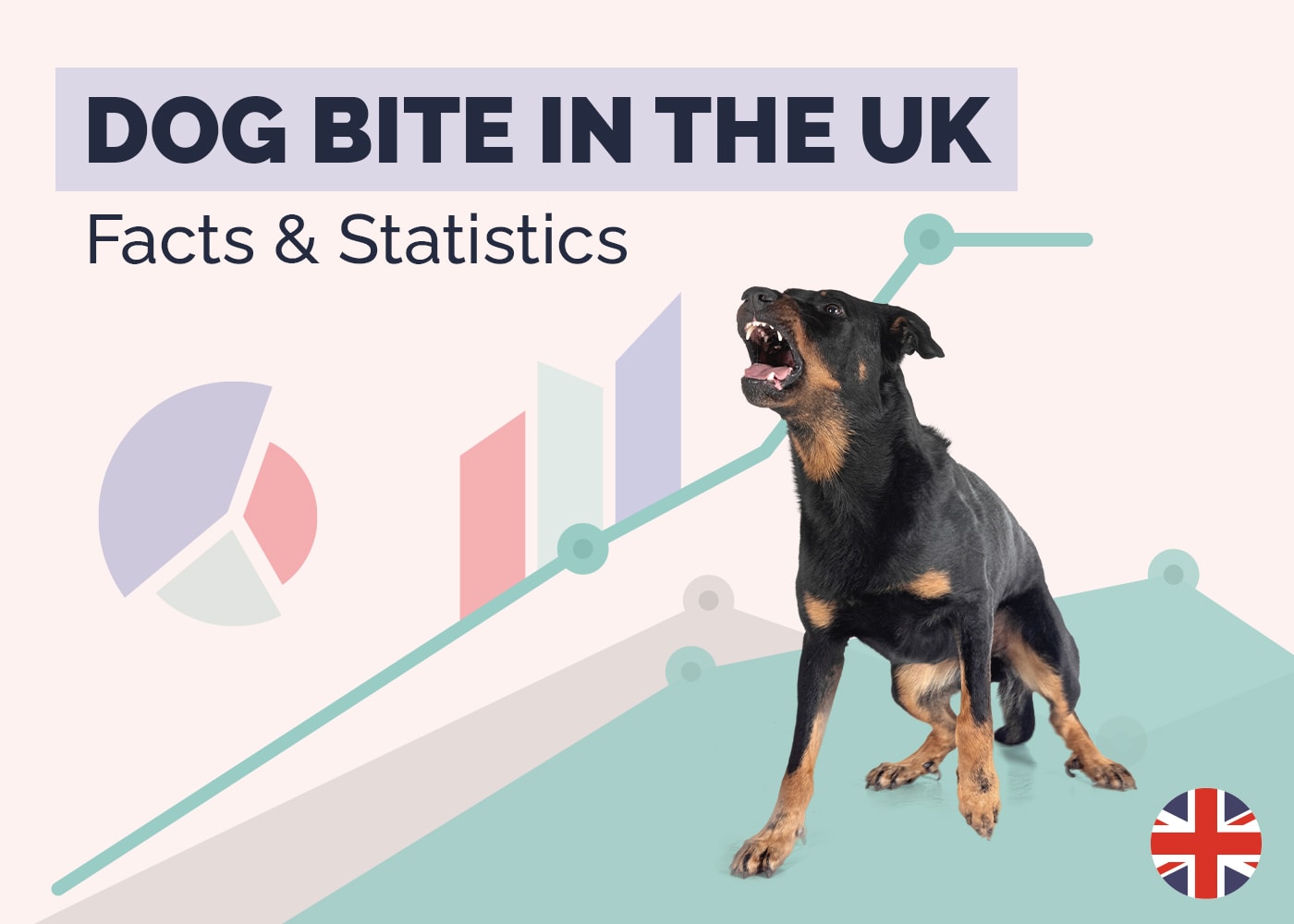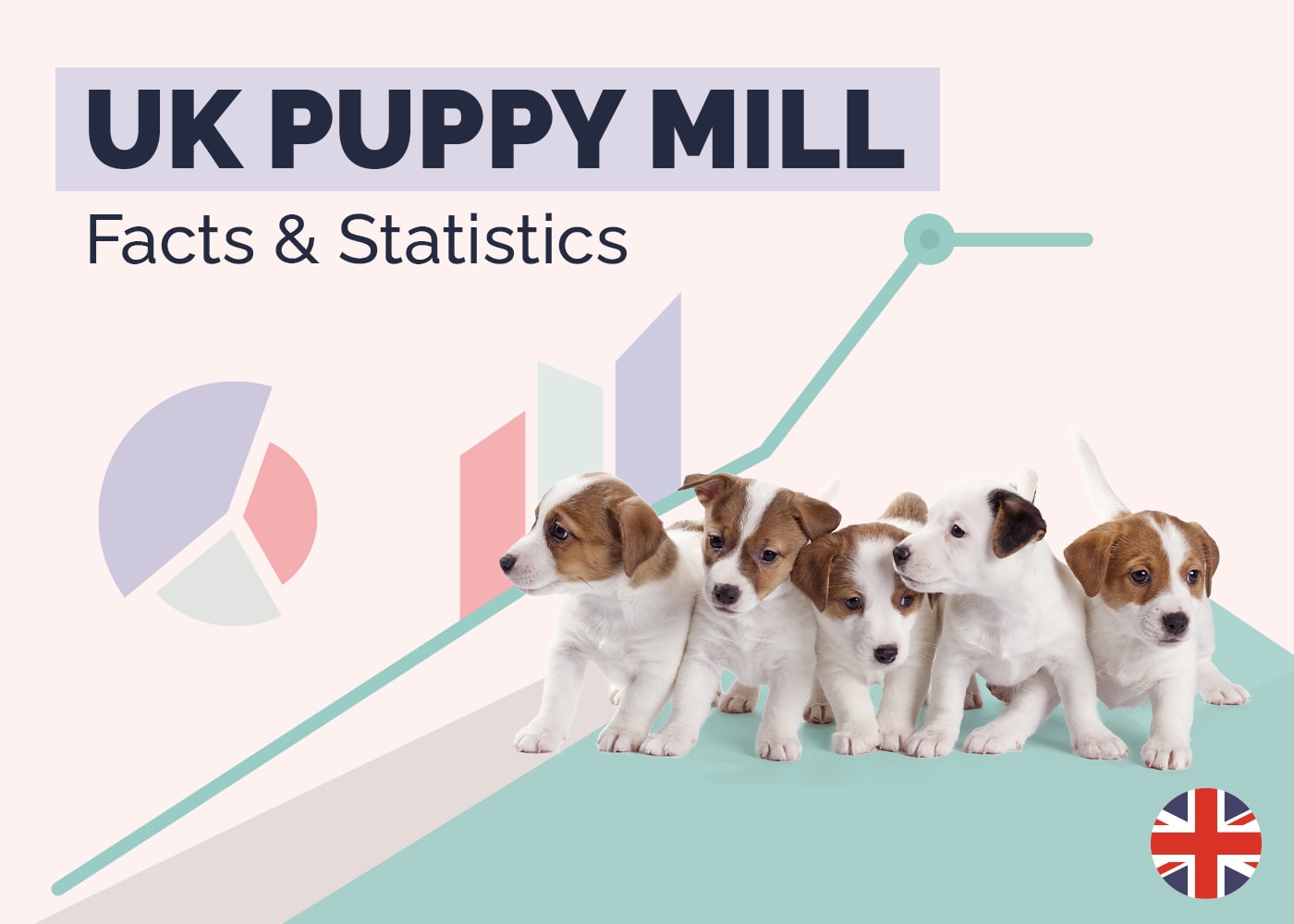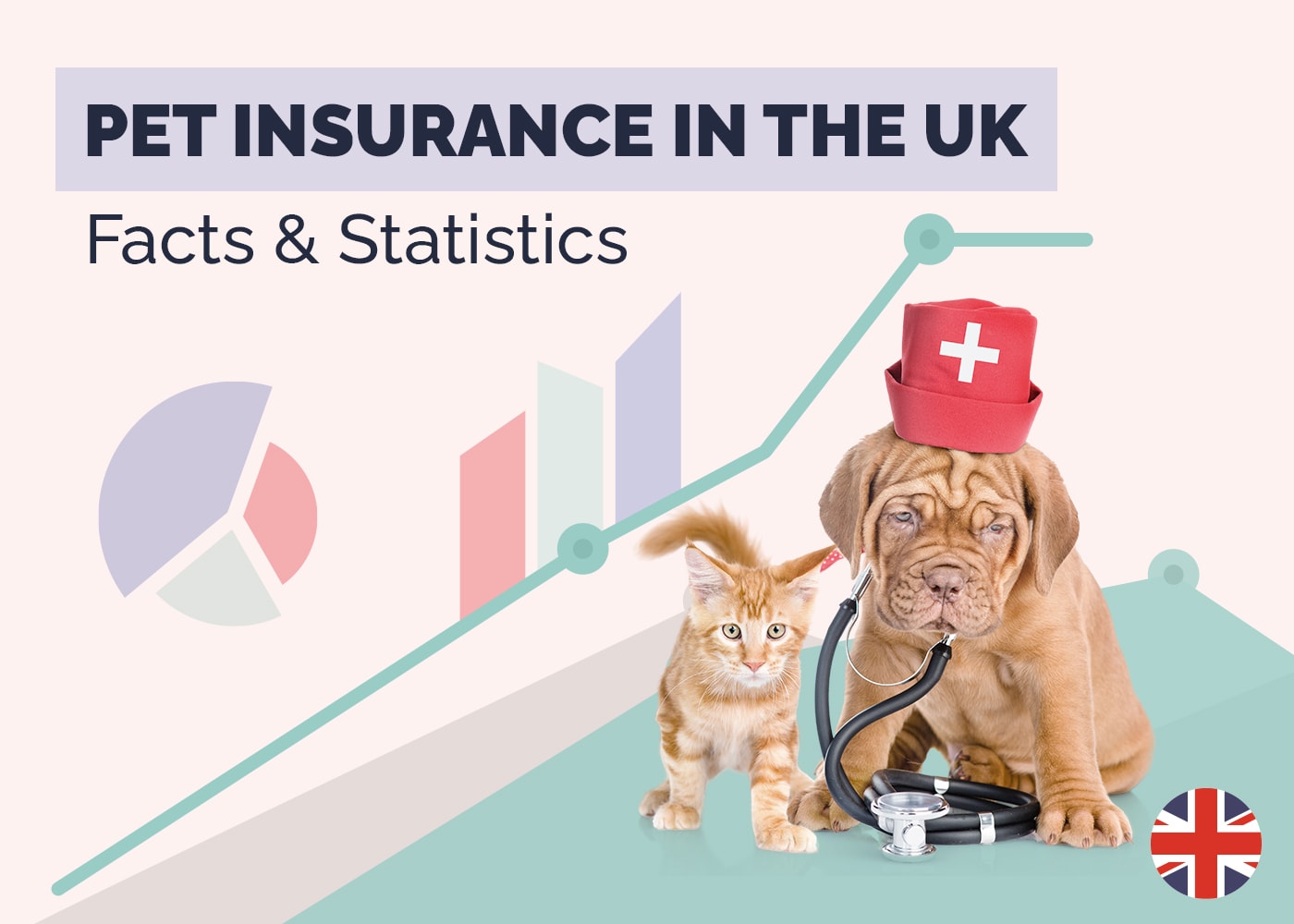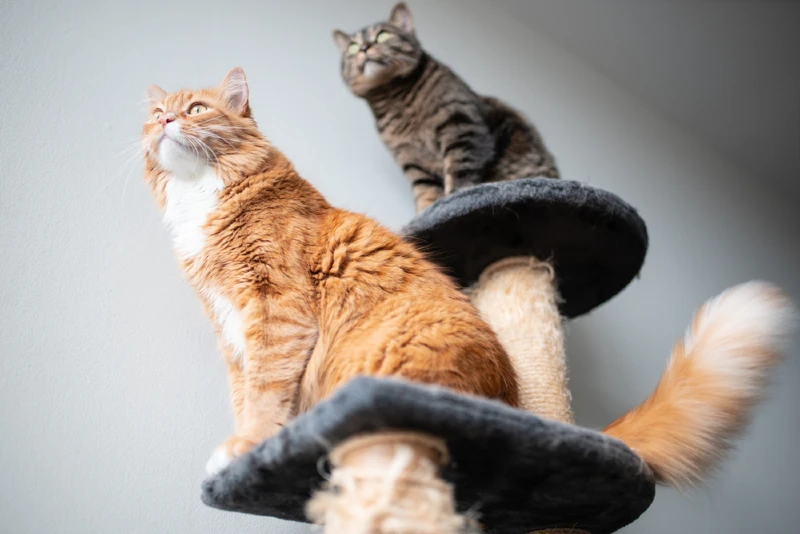What’s the Cost of a Cat in the UK? (2024 Update)
By Cheryl Regan
Updated on
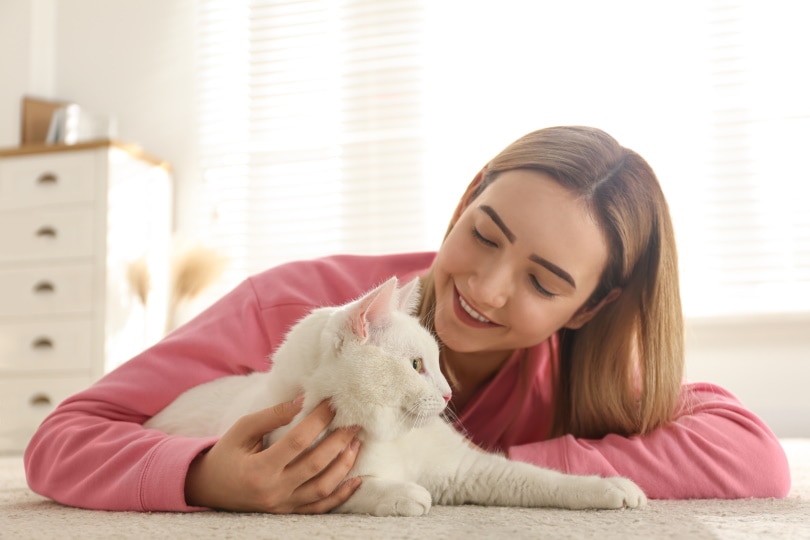
You don’t need me to tell you that cats are simply adorable—the thousands of hours of YouTube videos are more than enough to convince anyone. Cats are playful, fluffy, cuddly, and independent all at once.
If you’re serious about getting a cat, you need to be aware of all the potential costs involved. The initial cost of getting a cat will depend on whether you get it through adoption or a registered breeder, but it can range from £50 all the way to £200—though it may be possible to get one for less, or maybe even for free.
You should think about ongoing costs as well, such as pet insurance, vet visits, food, medicine, and other supplies. Not all of the costs mentioned in this article will apply to your circumstances, and in many cases, much of it will depend on you and your cat. For example, if you’re not planning on being away from home, you won’t need to worry about cat-sitters.
This article will give you a detailed breakdown of all the potential costs involved with owning a cat, so that you can make an informed decision on whether a cat is the right pet for you.
Bringing Home a New Cat: One-Time Costs
Buying a standard domestic cat from a reputable breeder or from a rescue center will, on average, cost around £50, sometimes less. For example, my cat—a domestic shorthair tuxedo cat—cost £45.
If you’re looking for a rarer breed, however, the price difference can become staggering. Russian Blue, Maine Coon, and Norwegian Forest cats can cost between £700 and £1,000.
Leopard and domestic cat hybrid breeds, such as Bengal and Savannah cats, can cost between £1,200 and £25,000, depending on how far removed they are from their wild ancestry.
Free
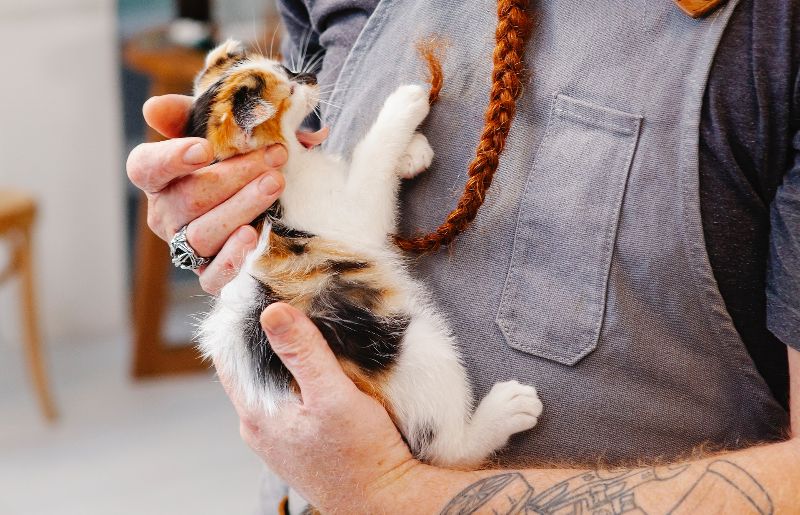
Some people find themselves in the lucky position of being given a kitten or cat for free. For example, if someone you know is moving away, or can’t care for their pet anymore, they may ask you to take it in.
If a friend or a family member has a cat who’s had a litter of kittens, they may gift you with one. Whatever the circumstance, you will still be responsible for providing your new cat with everything it needs—including food, a bed, and potentially health checkups and vaccinations.
Adoption
- £55–£150
Adoption is a wonderful option available to future pet parents. Each adoption center has its own fee structure, but the cost is usually less than if you were to buy from a breeder. Most rescue centers are nonprofit organizations, so the relatively small fee that they charge is just to cover the veterinarian and care costs of the animals they look after. However these costs do vary depending on location and each center’s fee policy.
RSPCA
The RSPCA has branches all over the country, and local branches will have slightly differing fees. Adopting a cat that’s over six months old will cost around £80. The fee for adopting a kitten under the age of six months is closer to £100.
Cats adopted from the RSPCA will come to you already microchipped, vaccinated, and neutered where possible.
Cats Protection
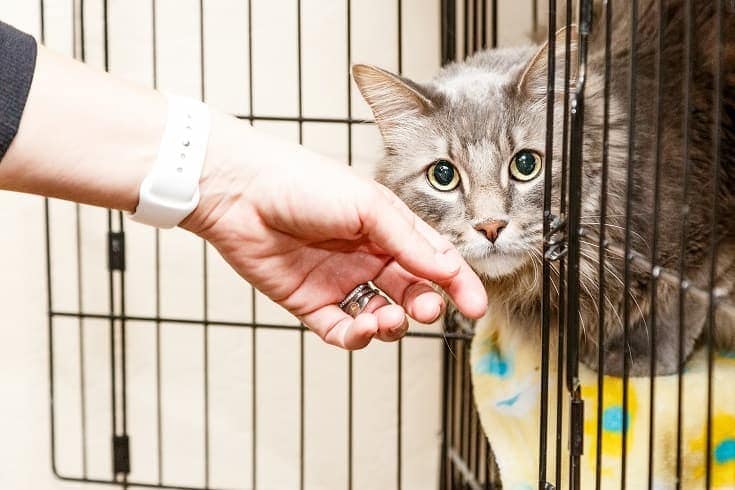
Cats Protection have branches all over the country, and each local branch adjusts its fees to cover the care costs incurred. On average, a cat or kitten costs around £55.
Cats from Cats Protection are vet-checked and treated for worms and fleas. They are vaccinated—either part or fully depending on their length of stay with the rescue center. These cats are neutered, microchipped, and sent to their new home with 4 weeks of Petplan insurance.
Blue Cross
Blue Cross have one fee structure to cover all of their branches. For cats younger than 12 months, the fee is £150. Cats aged one to five years old are £125, and cats older than this are £100.
Cats from Blue Cross are vet checked, vaccinated, and neutered.
Breeder
- £50–£25,000
A domestic cat from a breeder could cost as little as £50 or less. However, this price goes up if you’re looking for a pedigree or a rare cat. The most expensive cats available today are Savannah cats, and they can cost over £12,000. The prices for other pedigrees, such as Maine Coon and Russian Blue cats, fluctuate between £450 and £950.
Bear in mind the time of year that you’re searching for a cat. Prices tend to hike on the build-up towards the festive period. Whenever you do get a cat, try to do so from a reputable breeder to ensure the pet isn’t sick or stolen.
Initial Setup and Supplies
- £100–£200
If you’re adopting a cat, you probably won’t need to worry about vaccinations, microchipping, or neutering as the rehoming center might have done these things already. If you need to do it yourself, it’ll cost around £150.
Bringing a new cat or kitten home can be an exciting experience. Here’s a shopping list for the essential supplies you’ll need ready when you bring your cat home.
- Cat food
- Food and water bowls
- Pet carrier
- Litter box
- Cat litter
- Litter scoop
- Bed
List of Cat Care Supplies and Costs
| ID Tag and Collar | £8 |
| Spay/Neuter | £75 |
| X-Ray Cost | £300–£700 |
| Ultrasound Cost | £75–£175 |
| Microchip | £20-£30 |
| Teeth Cleaning | £80-£130 |
| Bed/Tank/Cage | £20 |
| Nail Clipper | £8 |
| Brush | £12 |
| Litter Box | £10 |
| Litter Tray Liners | £2 |
| Litter Scoop | £2 |
| Toys | £10 |
| Carrier | £15 |
| Food and Water Bowls | £8 |
| Flea and Tick Treatment | £17 |
How Much Does a Cat Cost Per Month?
- £30–£300 per month
The most essential recurring monthly costs of having a pet cat include food, treats, cat litter, and pet insurance. If your pet requires additional healthcare, you may find that your monthly costs are higher.
Some costs won’t apply to everyone. For example, while some cats require monthly professional grooming, others will maintain a healthy coat with the help of daily brushing. On the other hand, all cats will need regular flea and worm treatment to keep them healthy.
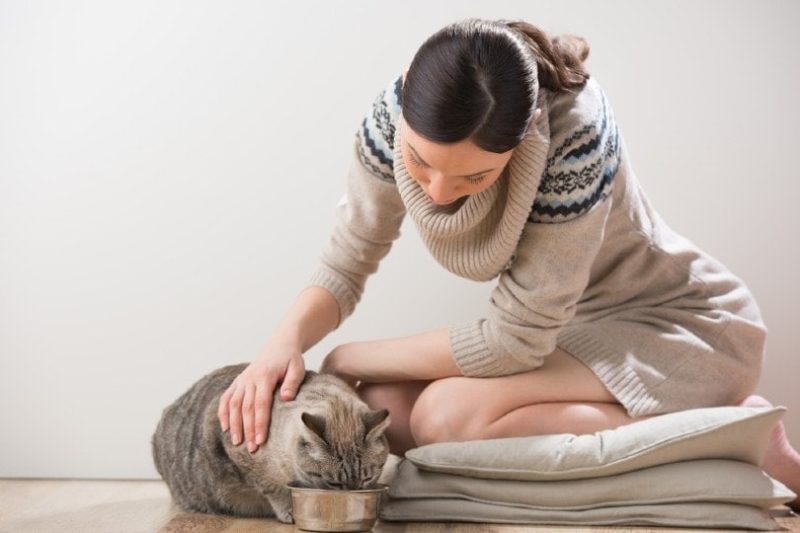
Food
- £20–£40 per month
The cost of cat food will depend largely on which brand you opt for. Gourmet cat food will cost more than the average box from Tesco, but it may be nice for your cat to try out new flavors.
If your cat requires a special diet, the cost of cat food may go up. Additionally, cat treats are important for training, and for keeping your furry friend happy.
Grooming
- £30–£180 per month
Not all cats need help with grooming. Shorthaired cats are low-maintenance, and they will quite happily groom themselves. An occasional brush from you may be enough to keep them happy and clean.
Cats with long hair will need help with grooming to prevent their fur from matting. Of these, lighter-colored and outdoor cats will require grooming more often than others.
Professional grooming services can cost as little as £30 or as much as £180, depending on various factors, including the size of your cat, the length of their hair, their current condition, and perhaps even their temperament.
Medications and Vet Visits
- £10–£130 per month
Spot-on flea treatment and worming tablets can be bought for as little as £10 per month, but for more complicated medication and treatment, you may have to take your cat to the vet.
Without insurance, regular vet visits can become quite costly. Routine blood tests, for example, cost between £100 and £130 per visit.
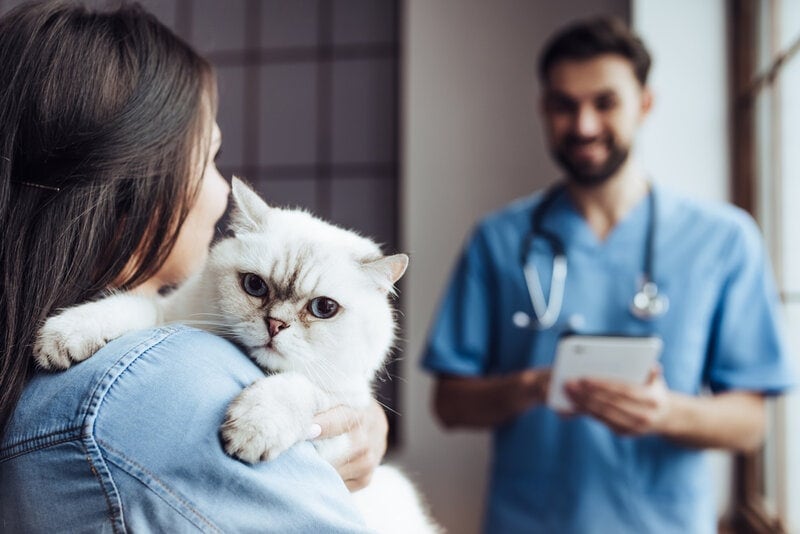
Pet Insurance
- £10+ per month
We all want to believe that our pets will be healthy their entire lives, but the truth is, just as with humans, we can’t predict when they might get sick or injured. With pet insurance, you won’t have to worry about how you will pay for your cat’s treatment if he ever needs it.
The cost of pet insurance will depend on factors, such as the level of coverage you choose, and the breed and age of your cat. If you shop around, you should be able to get a reasonable policy.
On average, you can expect to spend at least £10 per month on insurance for a healthy, young cat. Expect your insurance to get more expensive each year as your cat ages.
Environment Maintenance
- £5–£26 per month
Looking after both your and your cat’s environment will have a monthly cost. One of the earliest lessons I learned about being a cat parent is that scratching posts are a necessity—if I didn’t want my sofas to end up shredded and punctured with holes.
Here’s a list of supplies you may need to get every month:
| Litter box liners | £7/month |
| Deodorizing spray or granules | £5/month |
| Cardboard Scratcher | £4/month |
| Urine Stain and Odour Remover | £10/month |
Entertainment
- £4–£25 per month
Entertainment is vital to keeping a happy, content cat. Cats have an incredibly playful nature. Taking time out of your day to play with them can have a positive impact on both of you.
Most cats are naturally curious, and quite happy to entertain themselves with new items like an empty box, or a box full of shredder paper. Cat toys are great, but they don’t have to cost a lot.
My cat’s favorite ever toy was a small catnip fish that I bought from Pets at Home for £1. There are lots of replaceable toys out there, many of them costing as little as £4. But if you’re really looking to treat your cat, you can sign up for a cat toy subscription box, available from companies like The Pet Express, for around £24.99 per month.
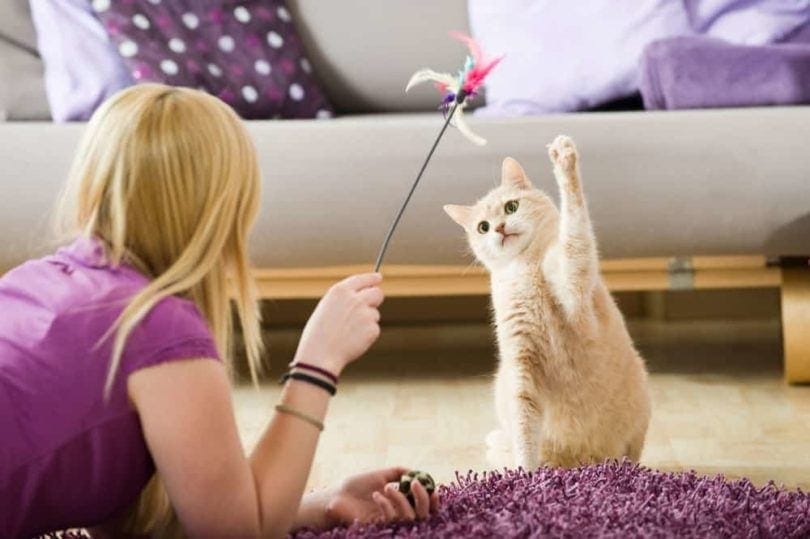
Total Monthly Cost of Owning a Cat
- £50–£300+ per month
When taking just the minimum necessities into account, you can still expect a cat to cost around £50 per month. This includes food, pet insurance, and flea treatment. When taking into account other costs, such as scratchers, treats, and toys, the price goes up.
Furthermore, your cat will rely on you to take care of them if they get sick or injured, and additional healthcare costs may apply. Additionally, if you have a cat with a strict diet requirement, this will affect how much you may need to spend on food every month.
Additional Costs to Factor In
Holidays and traveling away can be stressful for cats. Most people will leave their cat in a cattery when they go on a holiday, which would cost around £15 per day. Another option is to hire a pet sitter. Pet sitters charge either by the hour or for each visit they make—usually two visits per day. The average visit costs £15, so each day would cost a total of £30.
Some cats may have behavioral problems that you may end up needing help with. Professional cat behaviorists can help with issues like overgrooming, aggression, and scratching furniture. Cat behaviorists charge around £80 per visit.
If your cat scratches or damages your furniture, you may end up spending cash on fixing your home. In my experience, cats tend to grow out of destructive behavior—though mine still occasionally enjoys nudging objects off the edge of shelves!
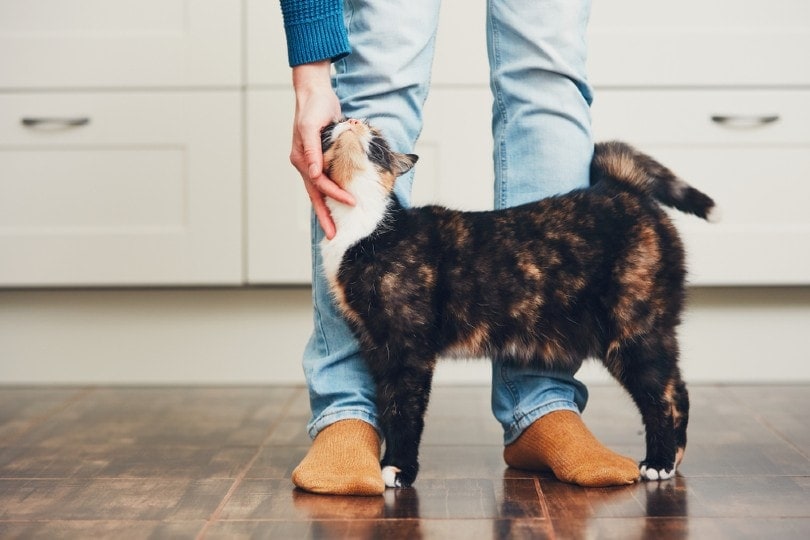
Owning a Cat on a Budget
If you’re worried that you don’t have the budget to pay for all of this upkeep, don’t lose heart! There are ways to own a cat on a budget, and I’m about to share some of my best tips with you.
Cattery Alternative
When going on holiday, we ask our wonderful friend and neighbor to watch our cat. Consider asking friends or family members to help look after your cat while you’re away.
Adopt a Cat
Adopt a cat from a rehoming center. Aside from a lower initial cost, organizations like Cats Protection encourage you to talk to someone at their local branch if you want to adopt a cat and you’re worried about the costs involved.
DIY Toys
Using everyday household items, such as toilet roll tubes and egg boxes, you can make clever puzzle feeders. Your cat would appreciate an old sock filled with a spoon of dried catnip just as much as he would a catnip toy from the store. There are endless ways to make your own environmentally-friendly cat toys to keep your kitty entertained.
DIY Cat Bed/Den
Whenever we get a large item delivered, I remove the top flaps and line the bottom with a small blanket. After exploring for a short time, he usually curls up and falls asleep in there. Try making your own DIY cat bed, or if you’re feeling adventurous, flip the box upside down and cut some doorways into it to make a DIY cat den!
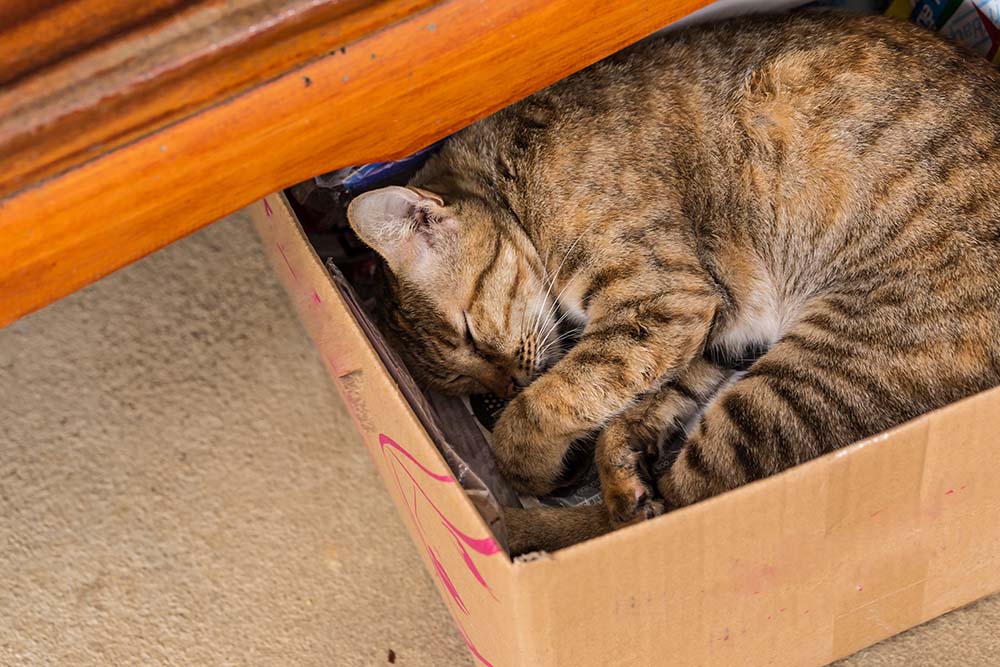
Saving Money on Cat Care
One of the best ways to save money on cat care is to shop around for pet insurance to make sure you’re getting a good deal. However, if you think your cat needs treatment and you can’t afford it, it’s vital to speak to your vet about it. They can offer help and advice on charities that may be able to help you with medical costs. Furthermore, they may be able to offer you payment plans to spread the cost of medical bills over several months.
Conclusion
The average costs of owning a cat depend on factors, such as the cat’s health, breed, and individual circumstances. On average, cats can end up costing you around £17,000 over their entire lifetime. This may seem daunting, but the figure is much more manageable when you break it down over months and years.
Owning a cat could cost you as little as £50 per month, but you should always be aware of the possibility that they may end up needing more. Once you’re ready to take the leap, adding a cat to your family is an incredibly rewarding experience!
Featured Image Credit: New Africa, Shutterstock

